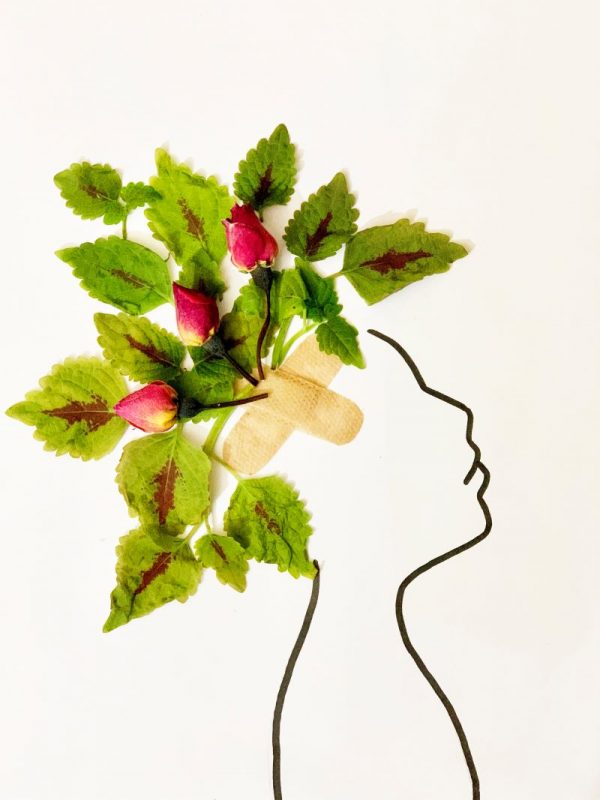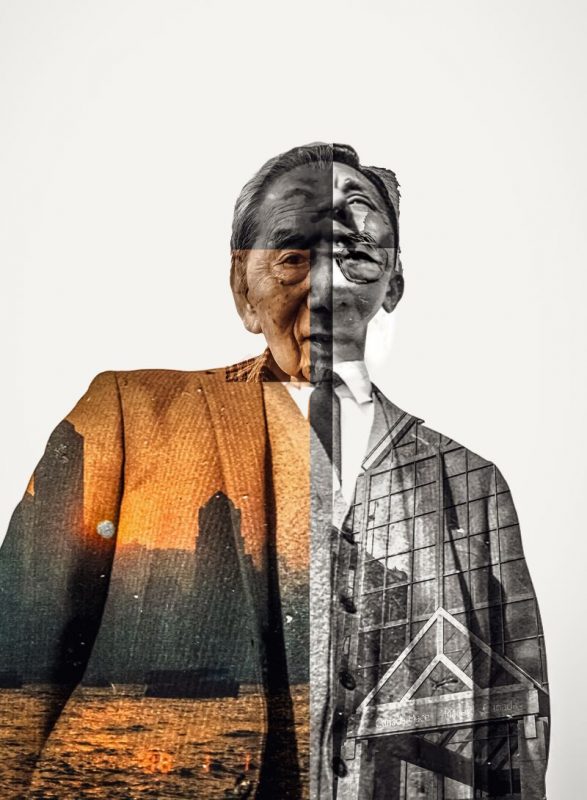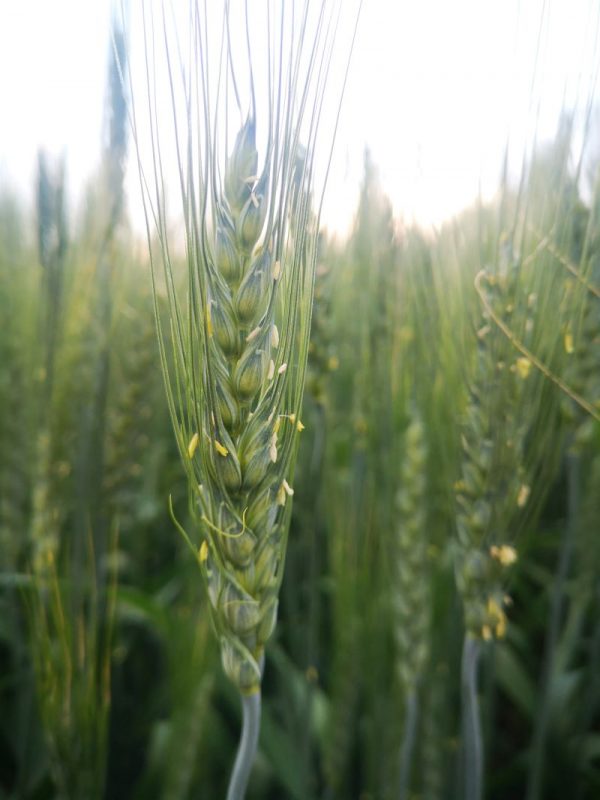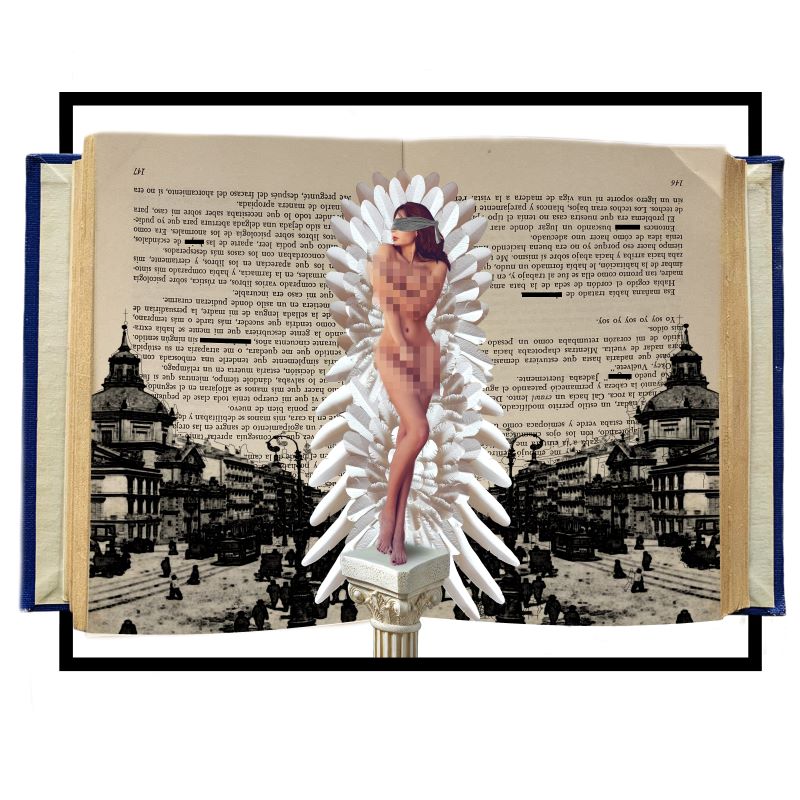We are pleased to announce the 2021 Images of Research winners. It was an exceptionally exciting year for winners and a tie for the People’s Choice Award. Congratulations to all!
We have a virtual exhibit for everyone to enjoy the finalist and semifinalist images this year that will be live April 7, 2021.
First Place

Turning Women’s Trauma into Strength
Sara Nekounamghadirli
MA Faculty: Extension
In my research about ohtisiy (a word in the Cree language that conducts us to identify ourselves on the matrilineal principles), I learned more about the women from different generations in my society and their endeavors to empower themselves.
In this research, I found that changing the role, responsibility and position of women throughout history has led to continuous progress in different aspects of their social life. Although women have encountered different challenges, they have employed strength-based approaches to resolve these problems. Women all over the world, are able to turn their personal or social trauma into strengths and effective actions! The image shows that the strength can be rebuilt and grown from any trauma.
Second Place

A Cross Time through Dementia
Heunjung Lee
PhD Faculty: Drama, Arts
This image is an homage to my husband’s grandfather who inspired my doctoral research on temporality of persons living with dementia. This collage represents his porous realities that cross his childhood in Hong Kong/Macao, the period of the Second World War, and his late life in Canada.
The orange color highlights his perceived present – it crosses him at age 98 in a nursing home in Edmonton and time in HK in 1998. In this cross-time, he recognizes me, a recently introduced family member, but at the same time, he worries about me missing the ferry between Macao and HK. I imagine the orange light may move at any moment and create a different version of reality.
‘Age and Time disorientation’ is a common phenomenon lived by persons with dementia. My research counters the dominant discourse that diminishes personhood of persons with dementia as ‘out of mind’ and urges us to rethink different ways of being and living. Drawing on performance theories and disability studies, my research argues people with dementia uniquely live with cross-temporality, that allows embodied engagements with exploded time – the radically new times with alternate constructions, directions and durations.
Third Place

Brain Games
Brian Marriott
PhD Faculty: Neuroscience, Medicine & Dentistry
Slice to D4. One after the other, the wells of the plate in front of me are methodically filled with brain slices, precisely cut by a vibrating blade. Each one thinner than a human hair, I delicately transfer each slice as they are cut to a collecting dish with a paintbrush. This self portrait peers through the dish as I collect the exact region of the brain my research revolves around: the claustrum.
My research has shown that the claustrum connects to other parts of the brain in an organized manner, contrary to some previous literature. However, this is only one piece of a much larger game. With each move the field makes to advance our understanding of the claustrum, the claustrum offers perplexing countermoves that defy our expectations. We are in a chess game against the brain. The brains counterstrikes against our inquiries do not come out of malice, but simply due to biological complexity! Each step we propose is an assumption based on prior knowledge, of which we stand at the frontier of. And yet, for every setback or strange result that invalidates our assumptions, we push forward into the great unknown, ever wiser. The machine whirs as a new slice is cut. Slice to D5.
People’s Choice

Inextricably tied: are humans and wheat truly different?
Habba Mahal
MSc Faculty: Biological Science, Science
Plants encompass every aspect of humanity; from maize to cassava, rice to canola, we have cultivated crops for 23,000 years. Yet, despite how vast our understanding of plants is, there exist misconceptions that they are inactive, insensitive and incapable of perceiving and responding to environments.
Sessile, the wheat stalk shown here, is actively making decisions above and below ground as to where to place its biomass to optimize nutrient, light and water intake while balancing its upkeep of reproductive and defence mechanisms. This is where my research comes in. In my experiment, I placed nutrients between wheat plants to determine their placement of shoots and roots when facing difficult decisions regarding family, competition, and resources. Will they selflessly grow away from nutrients to allow kin to take them, or are familial connections disregarded when facing a large reward?
Increasingly we see plants, like humans, make decisions that will benefit themselves and their offspring, even at the cost of other family. Thus, though we differ greatly from plants, enough similarities in our motives begs the question ‘are we really that different from a stalk of wheat?’
People’s Choice

Surrealist Venus in Translation
Sofia Monzon
PhD Faculty: Modern Languages, Arts
What are the connections between censorship and translation? Studying the intersection of censorship and translation helps us define the power dynamics lurking in the circulation of literature. My research focus on literary exchanges that took place between North America, Spain and Argentina (1950-1980). I analyze the Spanish translations of Sylvia Plath’s and Anaïs Nin’s The Bell Jar and Delta of Venus, as both were deemed morally subversive because of the sexual content they describe.
Due to the censorship mechanisms the two Spanish-speaking countries established, they are ideal contexts to investigate how literature travels by means of translation under authoritarian states. Censoring and translating are affective acts: they combine power, manipulation and the adaptation of the other. Thus, studying the intersection of censorship and translation under dictatorial regimes offers the opportunity to approach this research through the lens of affect theory.
This means underlining the interplay between literature, the emotional and the political, as the image depicts through a censored translation of The Bell Jar, and a blurred, blind Venus standing in between such circulation.
Check out the IOR Virtual Exhibit to see the Judge’s Special Recognitions and semifinalist images starting April 7, 2021.
